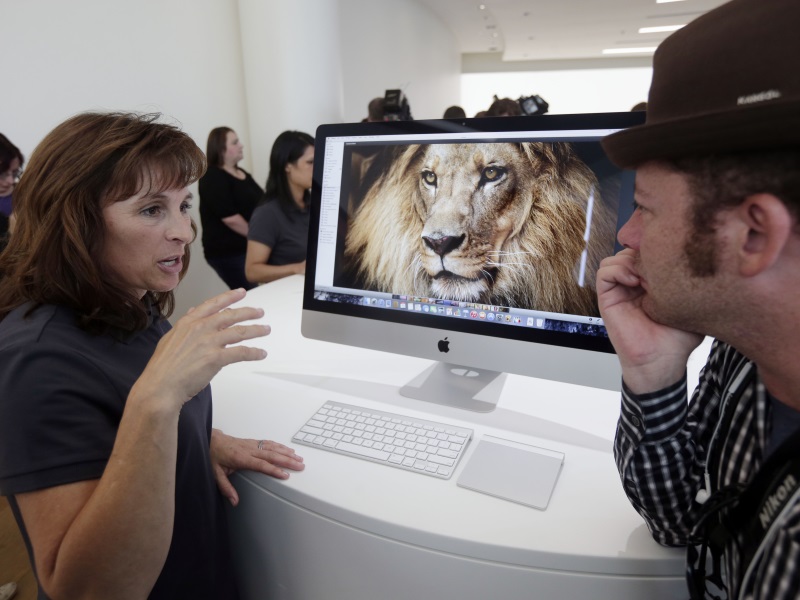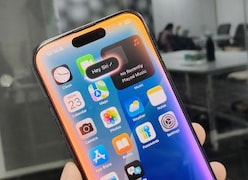- Home
- Laptops
- Laptops News
- Apple Defies Industry Trend as PC Sales Fall Again
Apple Defies Industry Trend as PC Sales Fall Again

Total PC shipments have been declining, industry wide, for the last four years, as consumers are waiting longer to buy new models and many are turning to smartphones or tablets. Even last summer's release of Windows 10 - Microsoft's new operating software - failed to boost overall sales.
All told, manufacturers shipped a total of 288.7 million PCs last year, down 8 percent from 2014, according to researchers at Gartner. Analysts at International Data Corp., using different methodology, put the total at 276 million and the decline at 10.4 percent.
Apple, however, saw an increase of roughly 6 percent, according to both firms. While other major PC-makers have seen ups and downs, Apple alone has enjoyed gains in each of the last three years.
Big manufacturers like Lenovo, HP and Dell still sell far more computers than Apple. Industry leader Lenovo shipped 57 million PCs last year, while estimates for Apple are just under 21 million.
Still, analysts say Apple benefits from its reputation as a premium brand in the United States and Europe. It's also been making inroads in Asia. Gartner analyst Mikako Kitagawa noted that Apple has been opening retail stores in China, which is now the second-largest PC market in the world.
Experts trace the PC industry's slump to the introduction of more powerful smartphones and tablets in recent years. Even Apple saw a slight decline in Mac shipments in 2012, when some buyers opted for iPads instead. The slump has also hurt chipmakers like Intel and other companies that make PC components, while forcing software makers to re-design their products for smaller, mobile devices.
Nearly every major PC maker now makes tablets, as well. Lenovo has also moved into smartphones, buying the Motorola phone business from Google in 2014. But tablet and smartphone sales are also slowing, as more people already own them.
Industry hopes are now turning to new "hybrid" computers, or tablets with detachable keyboards, which are touted as combining the best features of PCs and tablets. Sales of those devices are still small, but growing. IDC analyst Jay Chou said his firm expects industrywide shipments of traditional PCs will fall another 3 percent this year, but the addition of hybrids could turn that total into an overall increase of 1 percent.
Analysts also blamed last year's weak PC numbers on economic weakness in Asia and the end of a 2014 buying surge that followed Microsoft's decision to end support for Windows XP, an older version of its widely used operating software. An expected boost from the new Windows 10 was undercut by Microsoft's decision to give free software upgrades to owners of older machines.
For the latest tech news and reviews, follow Gadgets 360 on X, Facebook, WhatsApp, Threads and Google News. For the latest videos on gadgets and tech, subscribe to our YouTube channel. If you want to know everything about top influencers, follow our in-house Who'sThat360 on Instagram and YouTube.
Related Stories
- Samsung Galaxy Unpacked 2025
- ChatGPT
- Redmi Note 14 Pro+
- iPhone 16
- Apple Vision Pro
- Oneplus 12
- OnePlus Nord CE 3 Lite 5G
- iPhone 13
- Xiaomi 14 Pro
- Oppo Find N3
- Tecno Spark Go (2023)
- Realme V30
- Best Phones Under 25000
- Samsung Galaxy S24 Series
- Cryptocurrency
- iQoo 12
- Samsung Galaxy S24 Ultra
- Giottus
- Samsung Galaxy Z Flip 5
- Apple 'Scary Fast'
- Housefull 5
- GoPro Hero 12 Black Review
- Invincible Season 2
- JioGlass
- HD Ready TV
- Laptop Under 50000
- Smartwatch Under 10000
- Latest Mobile Phones
- Compare Phones
- Oppo Find N5
- Apple iPhone 16e
- Samsung Galaxy A06 5G
- Realme P3 Pro 5G
- Realme P3x 5G
- Vivo V50
- Realme GT 7 Pro Racing Edition
- Samsung Galaxy F06 5G
- Asus Chromebook CR11
- Lenovo Yoga Slim 9i (2025)
- Asus ROG Flow Z13 (2025)
- Xiaomi Pad 7
- Huawei Huawei Band 10
- Lava Prowatch X
- Haier M95E
- Sony 65 Inches Ultra HD (4K) LED Smart TV (KD-65X74L)
- Sony PlayStation 5 Pro
- Sony PlayStation 5 Slim Digital Edition
- Blue Star 1.5 Ton 3 Star Inverter Split AC (IC318DNUHC)
- Blue Star 1.5 Ton 3 Star Inverter Split AC (IA318VKU)
















